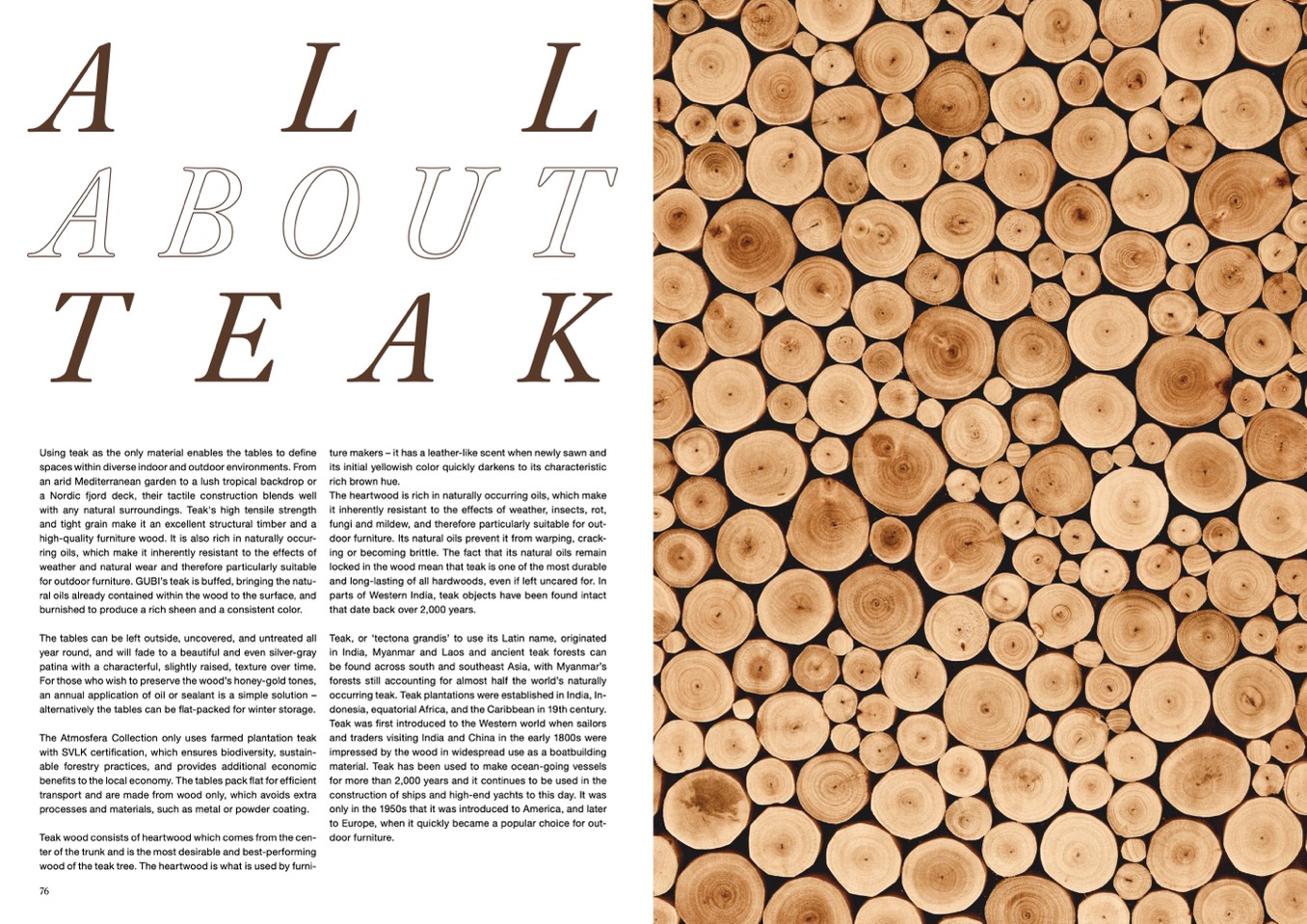
A
L
L
ABOUT
TEAK
Using teak as the only material enables the tables to define
spaces within diverse indoor and outdoor environments. From
an arid Mediterranean garden to a lush tropical backdrop or
a Nordic fjord deck, their tactile construction blends well
with any natural surroundings. Teak's high tensile strength
and tight grain make it an excellent structural timber and a
high-quality furniture wood. It is also rich in naturally occur-
ring oils, which make it inherently resistant to the effects of
weather and natural wear and therefore particularly suitable
for outdoor furniture. GUBI’s teak is buffed, bringing the natu-
ral oils already contained within the wood to the surface, and
burnished to produce a rich sheen and a consistent color.
The tables can be left outside, uncovered, and untreated all
year round, and will fade to a beautiful and even silver-gray
patina with a characterful, slightly raised, texture over time.
For those who wish to preserve the wood’s honey-gold tones,
an annual application of oil or sealant is a simple solution –
alternatively the tables can be flat-packed for winter storage.
The Atmosfera Collection only uses farmed plantation teak
with SVLK certification, which ensures biodiversity, sustain-
able forestry practices, and provides additional economic
benefits to the local economy. The tables pack flat for efficient
transport and are made from wood only, which avoids extra
processes and materials, such as metal or powder coating.
Teak wood consists of heartwood which comes from the cen-
ter of the trunk and is the most desirable and best-performing
wood of the teak tree. The heartwood is what is used by furni-
ture makers – it has a leather-like scent when newly sawn and
its initial yellowish color quickly darkens to its characteristic
rich brown hue.
The heartwood is rich in naturally occurring oils, which make
it inherently resistant to the effects of weather, insects, rot,
fungi and mildew, and therefore particularly suitable for out-
door furniture. Its natural oils prevent it from warping, crack-
ing or becoming brittle. The fact that its natural oils remain
locked in the wood mean that teak is one of the most durable
and long-lasting of all hardwoods, even if left uncared for. In
parts of Western India, teak objects have been found intact
that date back over 2,000 years.
Teak, or ‘tectona grandis’ to use its Latin name, originated
in India, Myanmar and Laos and ancient teak forests can
be found across south and southeast Asia, with Myanmar’s
forests still accounting for almost half the world’s naturally
occurring teak. Teak plantations were established in India, In-
donesia, equatorial Africa, and the Caribbean in 19th century.
Teak was first introduced to the Western world when sailors
and traders visiting India and China in the early 1800s were
impressed by the wood in widespread use as a boatbuilding
material. Teak has been used to make ocean-going vessels
for more than 2,000 years and it continues to be used in the
construction of ships and high-end yachts to this day. It was
only in the 1950s that it was introduced to America, and later
to Europe, when it quickly became a popular choice for out-
door furniture.
76

